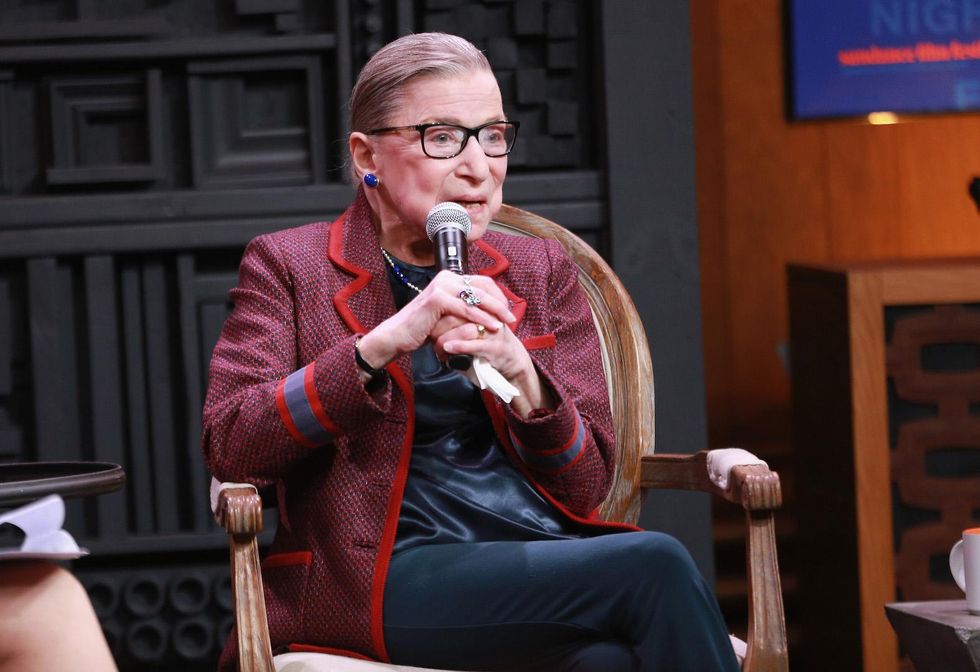
Supreme Court Associate Justice Ruth Bader Ginsburg said she hopes that "we will get back to the bipartisan spirit" when it comes to the congressional hearings for Supreme Court judges. (Robin Marchant/Getty Images)

As the looming announcement of President Donald Trump's Supreme Court nominee divides Washington along partisan lines, Associate Justice Ruth Bader Ginsburg spoke fondly of a time when judge confirmations weren't such a political battle, ABC News reported.
Ginsburg, speaking at a screening event in Jerusalem for a documentary about her life , recalled how different the process was when she was confirmed in 1993.
"I hope someday we will get back to the bipartisan spirit prevailing with respect to the confirmation of judges," Ginsburg said.
Ginsburg told the crowd at the event that when she was confirmed, a candidate's political history or affiliations were not such a strong factor swaying the voting.
"I was considered by some a controversial person because of my affiliation with the American Civil Liberties Union," Ginsburg said. "There wasn't a single question asked of me during my hearings about my ACLU connections. the vote was 96-3. When Justice [Stephen] Breyer was nominated the next year, the vote for him was also in the 90s. Since then the Senate has tended to divide along party lines and I think that's unfortunate. During my confirmation hearings, perhaps my biggest supporter was Orrin Hatch, the Republican senator from Utah.
"I hope someday we will get back to the bipartisan spirit prevailing with respect to the confirmation of judges," she concluded.
Justice Breyer was confirmed by the Senate by a final vote of 87-9.
The last two Supreme Court nominees have sparked contentious political struggles, and this one will likely be no different.
After the passing of Antonin Scalia, Senate Majority Leader Mitch McConnell (R-Ky.) announced the GOP's intention to block anyone nominated by President Barack Obama, since he would be out of office within a year. Obama's nominee, Merrick Garland, never received a hearing.
Democrats attempted to block Trump's nominee, Neil Gorsuch, with a procedural filibuster. Republicans responded by changing Senate rules to allow nominees to pass with a 51-vote majority, rather than the previously required 60 votes. Gorsuch was confirmed by a 54-45 vote, mostly along party lines.
Trump said he plans to announce his nominee to replace Justice Anthony Kennedy on Monday night. The finalists are believed to be four federal judges: Brett Kavanaugh, Raymond Kethledge, Amy Coney Barrett and Thomas Hardiman.
(H/T LifeZette)